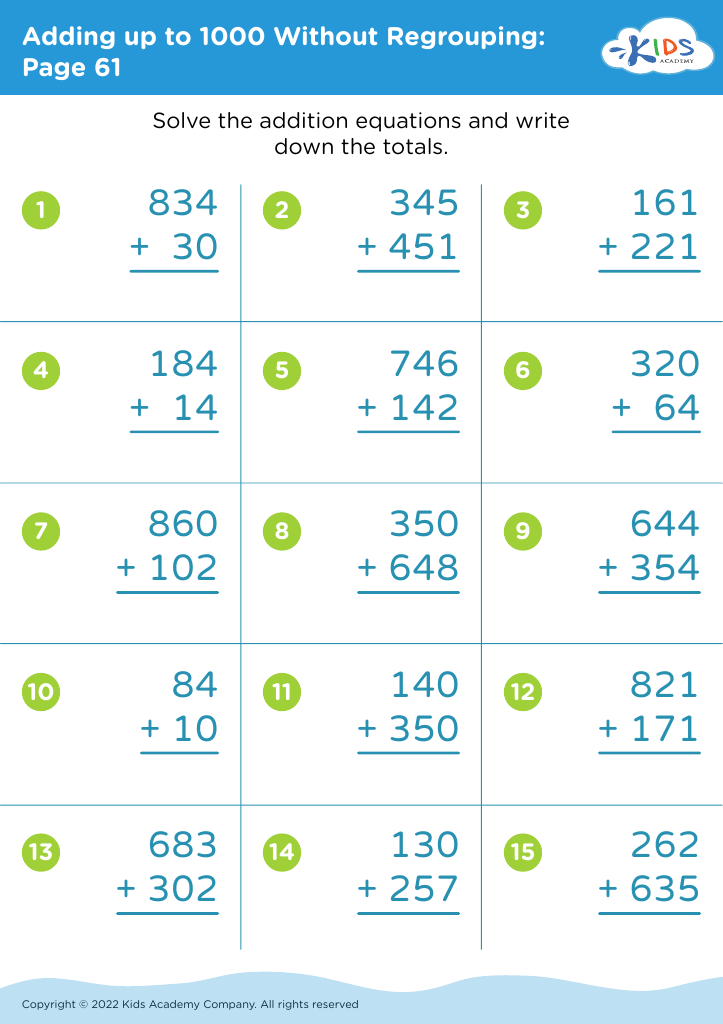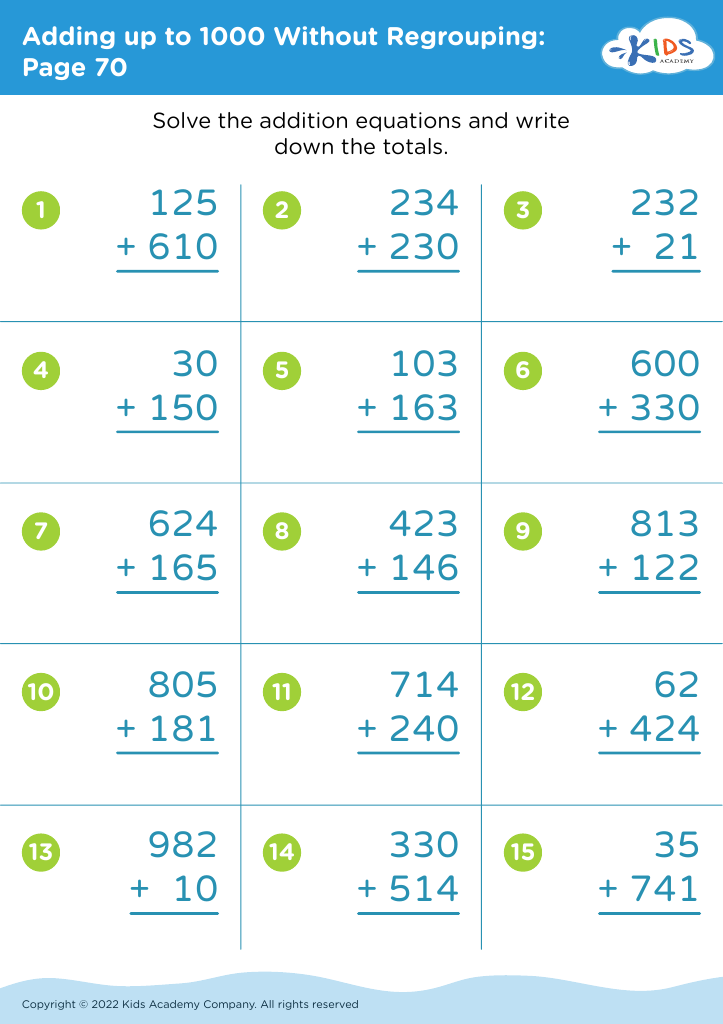Basic Addition Adding up to 1000 Without Regrouping Worksheets for Ages 4-8
4 filtered results
-
From - To
Welcome to our "Basic Addition Adding Up to 1000 Without Regrouping" worksheets, specially designed for children ages 4-8! These engaging and colorful worksheets aim to build a strong foundation in addition by allowing children to practice adding numbers up to 1000 without regrouping. Each worksheet offers a variety of exercises tailored to enhance early math skills, boost confidence, and make learning enjoyable. Ideal for both classroom and home use, our resources encourage children to explore addition strategies while developing critical thinking and problem-solving abilities. Start your little one's math journey today with our fun and educational addition worksheets!
Basic addition skills, such as adding up to 1000 without regrouping, are essential building blocks in a child's mathematical development. For ages 4-8, focusing on these skills creates a strong foundation for future learning and real-life applications. Understanding addition helps children develop critical thinking, problem-solving skills, and numerical fluency.
Parents and teachers should recognize that mastery of basic addition enhances cognitive development and boosts confidence in young learners. These skills promote number sense, which allows children to recognize patterns and relationships between numbers, making it easier for them to tackle more complex mathematical concepts later.
Engaging with basic addition using fun activities—like games and hands-on experiences—makes learning enjoyable and memorable. When students see practical applications, such as counting objects or solving simple word problems, they understand the importance of mathematics in everyday life, which fosters a positive attitude toward learning.
Additionally, emphasizing basic addition helps establish a shared language for math, allowing children to communicate their thinking effectively. This foundational skill not only prepares children for future challenges but also cultivates a lifelong love for mathematics, ultimately setting them up for academic success in higher education and beyond.














